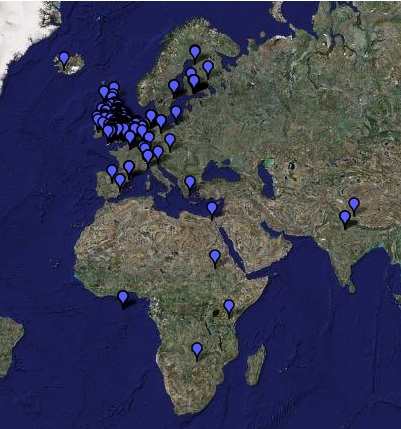There’s been a preposterous media fuss about a silly piece in Wired that was so off-beam I first thought it must be a spoof. It read like one of those pieces one finds in ‘lifestyle’ supplements. ‘Blogging is soooo yesterday’ was the general drift. It opens thus:
Writing a weblog today isn’t the bright idea it was four years ago. The blogosphere, once a freshwater oasis of folksy self-expression and clever thought, has been flooded by a tsunami of paid bilge. Cut-rate journalists and underground marketing campaigns now drown out the authentic voices of amateur wordsmiths. It’s almost impossible to get noticed, except by hecklers. And why bother? The time it takes to craft sharp, witty blog prose is better spent expressing yourself on Flickr, Facebook, or Twitter.
It looks as though the author of the Wired piece doesn’t know that blogging, like everything else on the Web, is subject to a Power Law distribution. This is an old story — remember Clay Shirky’s lovely essay on the subject many moons ago? But the operation of a power law says nothing about the rest of the distribution — the main part of the blogosphere, which seems to me to be as lively and as valuable as ever.
Now comes a splendid piece by Mick Fealty, onlie begetter of the wonderful Slugger O’Toole blog.
During last year’s Northern Irish election campaign, the one resource that had experts feeding from it time and time again was the anonymous blog, Sammy FB Morse has a posse which delivered 18 constituency guides unsurpassed in their quality and depth by anything the Irish MSM could reproduce.
Absolute numbers matter much less than the quality of the engagement. Though one is likely to follow the other, numbers are not always a pre-determinant of a good blog, and neither is a good blog always guaranteed good numbers. And as Niall Harbinson points out, the mainstream media is not always the best place to draw readership from.
Slugger is a case in point. In absolute terms it is large in Ireland, tiny in the UK. Yet in terms of penetration of its base market, Northern Ireland, Slugger has stolen a march on all other UK political blogs.
Slugger may be cross-party and multi-denominational, but over the last six years the blog has fumbled its way into a political mission of its own: making politics in Northern Ireland work. That means avoiding the dysfunctional relationship that blogs and newspapers have with politicians elsewhere. The increased political decentralisation that we see everywhere is, at least in part, the product of a media that is obsessed with the politics of personality, gossip from the “Westminster Village” and a focus on politics rather than policy.
Right on.

